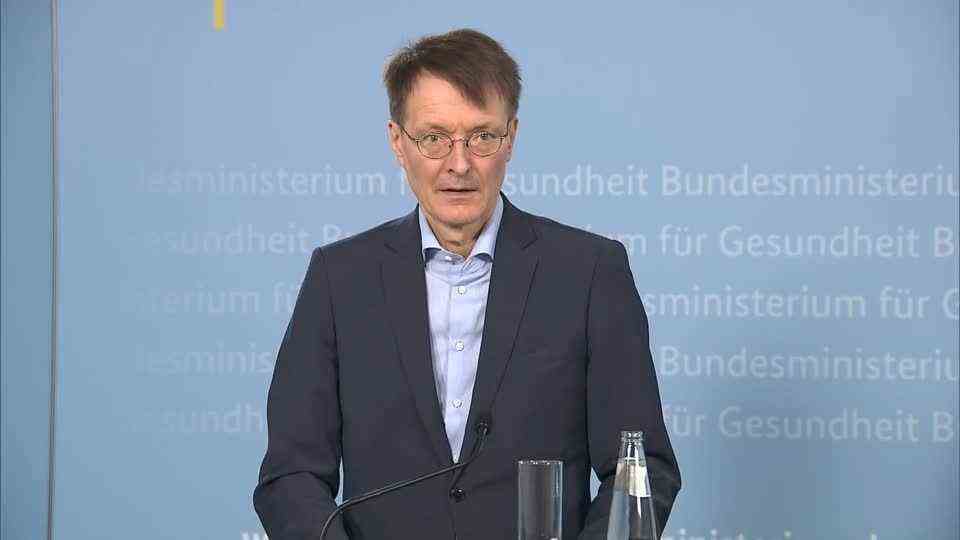Vaccinations in NRW
Booster after just four weeks? That is why immunologists are skeptical
The third injection against the coronavirus is called a booster. It is supposed to increase the effectiveness of the vaccination and should therefore not be done too early
© Georgios Kefalas / Keystone / DPA
When is the best time for the booster? A heated debate has broken out over this – the reason is a decision by the state government of North Rhine-Westphalia.
A booster should protect against infection with the coronavirus as well as possible. But such a vaccination after four weeks after the second injection makes little sense from the point of view of immunologists.
In North Rhine-Westphalia, booster vaccinations are generally possible after four weeks according to a decree by the state government, but there is no explicit recommendation, said Prime Minister Hendrik Wüst (CDU) on Tuesday. Some politicians are already calling for this path to be expanded. The German Society for Immunology sees this critically: four weeks after the second vaccination, certain immunological processes are not yet complete. The booster then works much worse.
Booster after four weeks only makes sense in exceptional cases
“Politics mixed up two things here that shouldn’t be mixed up,” said Prof. Carsten Watzl (Dortmund), Secretary General of the German Society for Immunology, of the German Press Agency. One is the recommendation of the Standing Vaccination Commission that some people should be boosted after just four weeks. “However, this only applies to people with a weakened immune system who did not react or hardly responded to the first two vaccinations,” explained the immunologist. “The third vaccination doesn’t boost their immunity – I have to get them up first.”
“For everyone else – and that is the majority – I would like to achieve a boost in immunity with the third vaccination,” said Watzl. “For this, certain processes must first be completed.” Sufficient antibody-producing plasma cells and T cells would have to have formed, some would have to be converted into memory cells, others would have to migrate to the bone marrow. “These are processes that are not yet completed after four weeks.”
From an immunological point of view, four months are the minimum, said Watzl. “When I then vaccinate a third time, the body has already developed the cells that are best tailored to the pathogen – and I want to reinforce them again. This means that the immunity is much better than if I vaccinate again after four weeks. ” The decision was presumably made out of fear of Omikron, said Watzl, but does not consider it to be “expedient. What would be more expedient would now be to increase the rate of first and second vaccinations again.”
Immunity has to mature – like a good wine
The President of the German Society for Immunology, Prof. Christine Falk (Hanover), also considers a shortening to be wrong. “From an immunological point of view, four weeks after the third vaccination are too early,” said Falk of the German press agency. The immune system is then still busy with the “maturation”. “Above all, the antibodies are improved once again – like when a good wine is matured”.
“If you deal with this process too early with a third vaccination with the administration of the antigen, that disturbs the maturation process rather than supporting it.” In addition, the antibody levels are at their highest level after four weeks – “therefore a third vaccination at this early stage does not bring that much,” said Falk. It is better to use the resources to boost people whose second vaccination was more than six months ago or for risk groups.
“Minimum interval of four weeks”
In a decree sent to districts and urban districts on Monday, among other things, it said literally: “People who received the basic immunization less than five months ago, however, are not to be rejected and also to be vaccinated – provided a minimum interval of four weeks is reached.”
Wüst said that “the whole time” nobody had been rejected who wanted a booster a few days or weeks before the end of the five months after the second vaccination. Now a “lower limit” of four weeks has been drawn in. But now it is not recommended to “run after four weeks.” With a new decree, “communicative question marks” should now be clarified.

See in the video: Federal Health Minister Lauterbach wants to urge the federal states for uniform booster rules.

